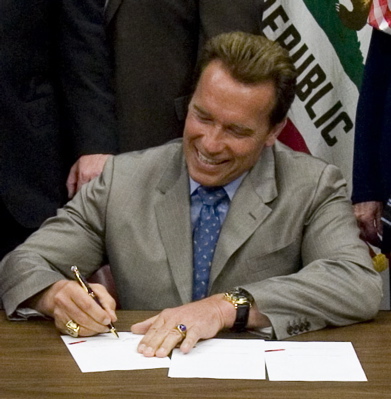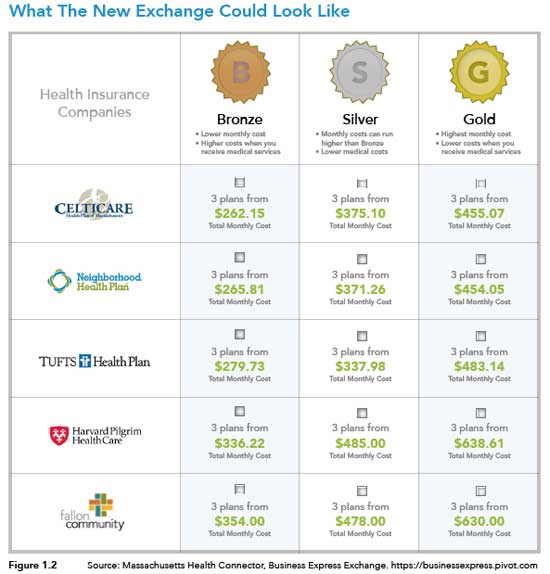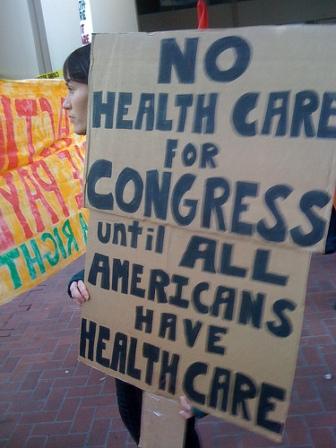... newer stories
Dienstag, 26. Oktober 2010
Health care updates!
trickymaster, 23:58h

1. The first wave of Health insurance reform came into effect:
Insurers will no longer be able to
- Deny coverage to kids with pre-existing conditions.
- Put lifetime limits on benefits.
- Cancel your policy without proving fraud. Health plans can’t retroactively cancel insurance coverage
- Deny claims without a chance for appeal.
- Receive cost-free preventive services.
- Keep young adults on a parent’s plan until age 26.
- Choose a primary care doctor, ob/gyn and pediatrician.
- Use the nearest emergency room without penalty.
Well, but all these things will not help as long as they only apply to new individual insurance plans. In addition to that, those plans are 30% higher so the overwhelming majority will not be able to afford care.

It will create a five-member oversight board that will be responsible for running the exchange and negotiate premiums. The legislation forbids insurance industry representatives, health care providers and others with direct conflicts of interest from taking a seat on the board. Other bills were also signed to increase transparency of premium hikes and to bar insurers from denying coverage for children.
Source: http://www.eastvalleytribune.com/local/health/article_62db4fdc-d232-11df-86bb-001cc4c03286.html
While this might seem like a big step, mainstream media completely ignored the bills, Schwarzenegger vetoed:
- AB 1600, mental health parity
- AB 2402, limiting rate increases
- SB 56, public health options
- AB 2540, increase fines for improper rescinding of consumer’s coverage
Source: http://www.healthycal.org/schwarzenegger-vetoes-health-reform-bills.html

"The coalition government’s plans for the NHS represent the final conversion of healthcare into something to be bought, with really good care going to those who can pay for it and only a defined ‘package’ of free treatments, of declining quality, for everyone else.
What has already occurred with dentistry, physiotherapy, podiatry and other services will start happening across the board. ‘Top-ups’ and ‘co-payments’ will become standard. Some treatments will cease to be available freely on the NHS and have to be paid for – if you can afford it.
It’s already happening all over England, as staff and services are cut to meet the government’s demand for £20 billion ‘savings’ over the next five years. GPs are being told to refer many fewer patients to specialists."
Source: http://pnhp.org/news/2010/october/dismantling-the-nhs
Once again, people will suffer because conservatives refuse to understand that health care cannot be compared to a car or a house. Demand and supply can't apply to something everyone needs to survive. A good health care system must make millions of "irrational" choices in order to save human lives.
... link
Dienstag, 7. September 2010
Up to $10 billion in fines from PacificCare for corporate greed.
trickymaster, 23:55h

In court filings and other documents, the California Department of Insurance says PacifiCare violated state law nearly 1 million times from 2006 to 2008 after it was purchased by UnitedHealth Group Inc., the nation's largest health insurance company by revenue."
Source: http://www.latimes.com/business/la-fi-pacificare-unitedhealth-20100908,0,6380098.story
This is the perfect proof to show that a privatized health insurance system is far from working smoother or more efficient than government health care. In fact, I have never heard of such a thing in a coutnry with a government-run unviersal health care system. I just hope that the California government will demand the whole fine.
... link
Montag, 16. August 2010
The 4 major health care systems you need to know!
trickymaster, 19:40h

Reporter T. R. Reid explains the differences between the four main models of health care systems: Beveridge, Bismarck, National Health Insurance and Out of Pocket.
Beveridge is basically socialized medicine, where the government both pays for care and employs the providers. The most well-known example is Britain’s National Health Service.
In a Bismarckian system, employers provide health insurance, and costs are shared between employer and employee. Insurance plans are private and/or public. Germany, the Netherlands and Switzerland have the Bismarck model.
The National Health Insurance model is single payer, in which the government pays for all healthcare costs through taxation, and the providers remain in the private sphere. Canada, Australia, Taiwan and South Korea have single payer systems.
The Out of Pocket model is basically what Third World countries have – if you’re lucky enough to see a doctor, you may have to pay an entire year’s salary for the treatment.
Reid points out that the United States has all four models. If you’re a veteran, he says, you live in Britain. If you’re employed, you’re in Germany. If you’re 65 and over, Canada. But if you’re uninsured, Afghanistan. The difference between America and the rest of the other industrialized countries, Reid says, is that the other countries have decided on one system for all their citizens.
This is a very insightful article and video about the different universal health care systems that I recommend to anyone who wants to know about the options to reduce our health care spending while we increase the quality of care and expand it to all citizens, residents and even non-residents.
Source: http://californiaonecare.org/reporter-t-r-reid-shows-america-how-the-world-does-health-care/
... link
Why a health exchange would be negligible under single-payer.
trickymaster, 19:13h

By Don McCanne, MD
“Health Insurance Exchanges and the Affordable Care Act: Key Policy Issues,” by Timothy Stoltzfus Jost, should be read in full (44 pages) by everyone who cares about the future of our health care system. The Executive Summary alone is not adequate to understand the implications of the issues he discusses. Every page requires attentive reading since each is covered with red flags, far too many to cover in a qotd commentary.
It is an especially important report for those who believe that the health insurance exchange model is a satisfactory compromise for moving forward, while dismissing further efforts to create a public national health program. It is also important for single payer advocates (improved Medicare for all) since it is important to understand the red flags raised by this report, and be able to debate them with others.
Many of the issues listed would disappear under a single payer system. For instance, in spite of the measures in the law, adverse selection (concentrating high-cost patients in health plans) cannot be eliminated by the insurance exchanges, yet it would disappear in a single universal risk pool. That is especially important since adverse selection has destroyed previous insurance exchanges in numerous states.
Read more: http://californiaonecare.org/don-mccanne-md-policy-issues-for-the-health-insurance-exchanges/
... link
Donnerstag, 22. Juli 2010
This is why HCR sucks!
trickymaster, 20:54h

• No price controls. Wall Street has already factored in rapid expansion of markets for drugs, medical devices and other services in a system of expanded access.
• No bulk purchasing. The PPACA has prohibited the government from negotiating the prices of prescription drugs and retains a ban on importation of drugs from Canada and other countries.
• Lack of control over perverse incentives that drive increased volume of services. These in turn are driven by retention of fee-for-service (FFS) reimbursement that encourages physicians and other providers to offer more services than are medically appropriate or necessary.
• No effective mechanism to rein in marginal or ineffective technologies. Coverage policies for new drugs and medical devices are still lax and not subject to rigorous evidence-based criteria for either efficacy or cost-effectiveness.
Click here to read the rest of Dr. Geyman’s article:
http://www.huffingtonpost.com/john-geyman/hijacked-stolen-health-ca_b_638630.html
Source: www.californiaoncecare.org
Short, he hits the nail on the head. In fact we shouldn't even call it Health Care Reform. For me, HCR died the day the public option was dropped. As long as the government doesn't have an active role in health care like Canada, European countries and even Hong Kong, the costs for health care will continue to rise. The special deals in this bill don't serve anyone than the health care lobby and big pharma companies.
... link
... older stories